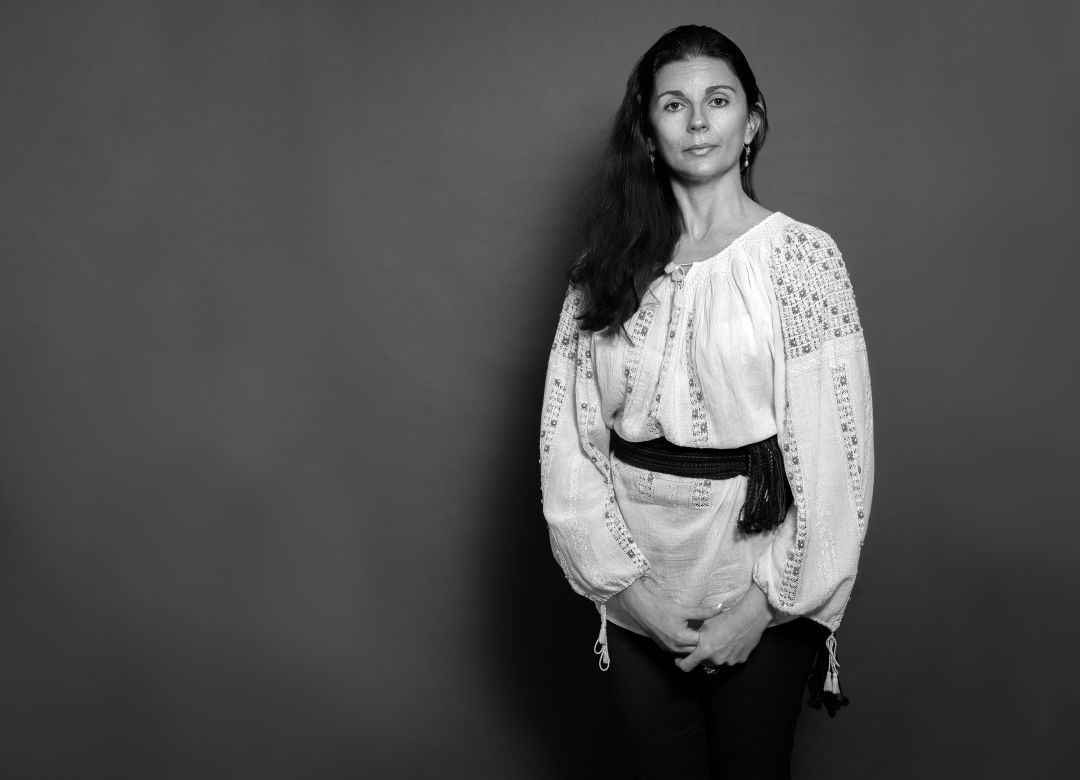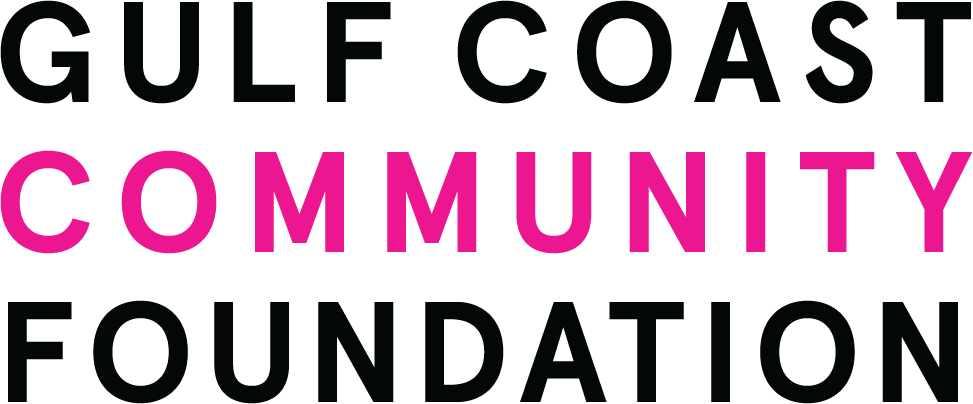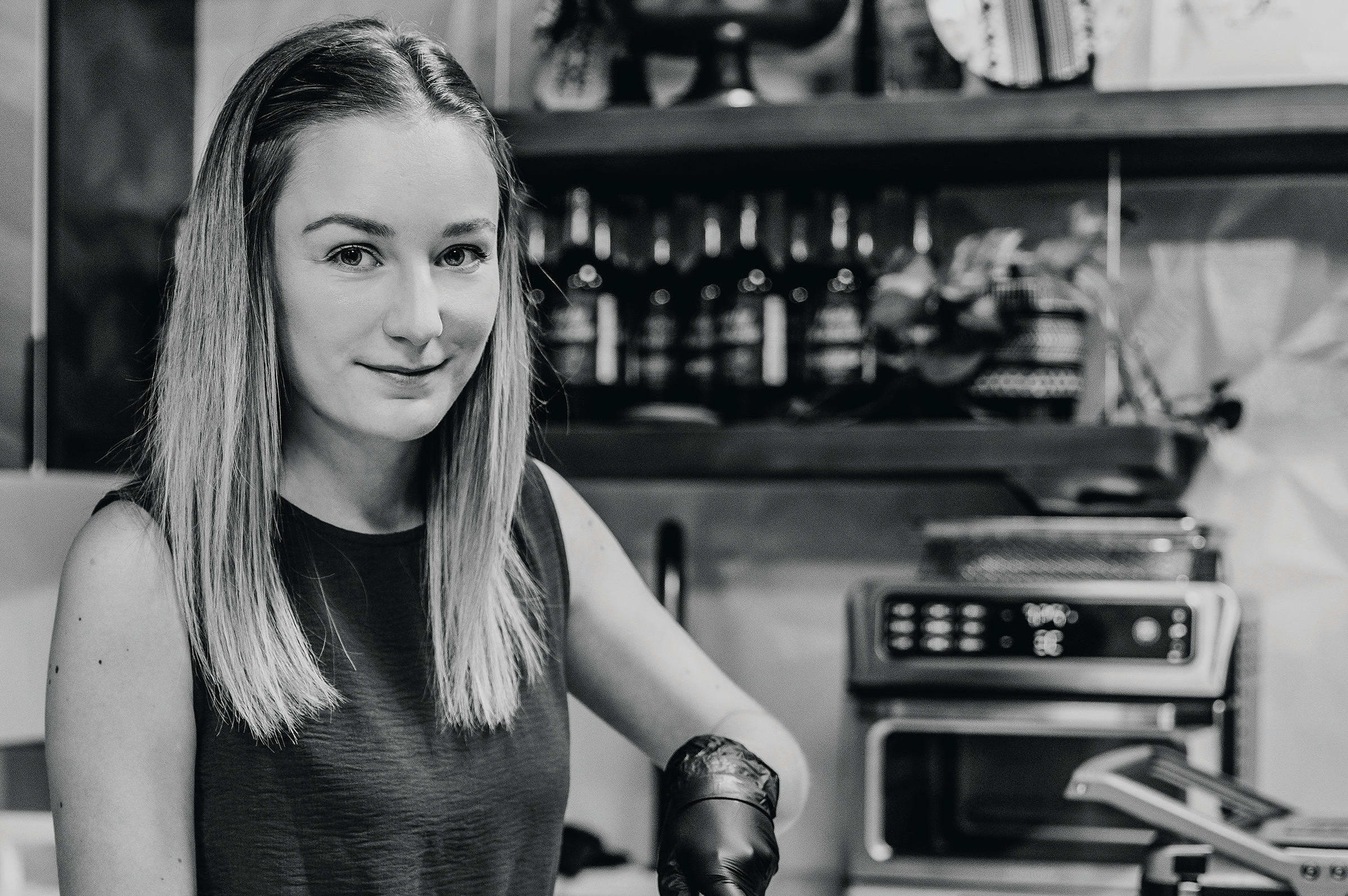A Local Ukrainian Shares Her Thoughts on The Russian Invasion
This article is part of the series Listening to Diverse Voices, proudly presented by Gulf Coast Community Foundation.

Halyna Kovalyshin
Image: Michael Kinsey
Russia’s invasion of Ukraine is still ongoing, with the number of refugees, civilian shellings and casualties on the rise since Russian forces crossed the Ukrainian border on Feb. 24. In retaliation, the U.S., along with other countries, has placed sanctions on Russia, some European countries are sending equipment and weapons, and locals in Sarasota are helping by organizing rallies and fundraisers. Additionally, the lighting of the John Ringling Causeway Bridge in blue and yellow, the colors of the Ukrainian flag, is an act of solidarity.
On Feb. 21, Russian President Vladimir V. Putin recognized the regions in east Ukraine—the so-called Donetsk People’s Republic and Luhansk People’s Republic—as independent states, telling the world they were no longer part of Ukraine.
On Feb. 24, he ordered troops into the two regions in what he said was an attempt to maintain peace. The Russian government claimed its reason for invading was to protect Russians in those regions from genocide and the “neo-Nazis” controlling Ukraine’s government. Russia also said it would engage in peace talks only when Ukraine stopped fighting. According to the United Nations, more than 2 million people have fled the country as refugees.
But there’s a long history of tensions between Russia and Ukraine. The same year the Soviet Union collapsed, in 1991, Ukraine split from the country and became an independent European democracy, today made up of 44 million people. Here’s what one local Ukrainian, Halyna Kovalyshin, of North Port in south Sarasota County, shared with us about what is happening in her home country.
Where are you from in Ukraine?
"I was born in Lviv, in the western part of Ukraine near Poland. But when I was born, in 1980, it was the Soviet Union."
What was it like growing up in Ukraine?
"It was a happy childhood. We had to learn Russian at school–it was the rule–and they encouraged us to speak Russian at school, too. But we spoke Ukrainian at home and with friends, outside of school. When the Soviet Union collapsed in 1991, the first country I went to was Poland because I have family there. The most fascinating thing to me was the lights on the streets. In Lviv, it was always dark. The government would just turn off the lights to save energy, they said, for hours at a time without warning. It was like a fairy tale in Poland because of the lights."
"Growing up, our neighbors were Russians. They talked in Russian with each other. We weren't so friendly. We said ‘Hi’ but never became close."
Why did you leave?
"It was my husband's work. He worked for the Catholic Church and the bishop asked him to come to Parma, Ohio, to be a pastor at a Greek Catholic church there. A year later, we moved to North Port."
What do you do for a living?
"I work in a retirement complex in Venice as a nurse."
Do you work with Ukrainians? What are they saying about the conflict?
"We have another nurse from Ukraine and her family is still in Ukraine. We ask how the family is doing and if they’re still alive."
What are you hearing from friends and family in Ukraine?
"In Lviv it’s quiet, for now. [My friends and family] all stayed; none have left so far. Some of them went to Kyiv to help, and some stayed to volunteer to patrol the streets as peacekeepers. My brother-in-law was looking forward to retirement, but he went to Kyiv to help. He had been fighting in the two regions [Donetsk and Luhansk] when they proclaimed that they wanted to be part of Russia.
"The problem is because it's mostly Russian-speaking people there, the people in those regions feel split. They live in Ukraine but they speak Russian and some want to live in Russia, but they don’t even know what it could be if they lived in a true democracy. Geographically, we’re neighbors with Russia so this is our biggest problem. Poland had similar issues but it's further away, so they were able to get their footing very quickly when they transitioned from a Communist country to a democratic system, but we can't escape."
How do you feel right now?
"It’s very heartbreaking because I have Russian friends who understand, and some of them are waiting for their legal papers and they don't want to go back and they support and understand the issues.
"When I was a child we used to go to the eastern side of Ukraine to see the beautiful architecture and now it's all destroyed. It’s very sad. We all hope [Putin] won't go toward where I'm from in the west. No one knows what he wants to do. It's a fear we all have. I’m angry at what [the Russians] do because we never posed a threat to them and we all want democracy and independence. I think Putin was planning to do this over many years but didn't expect us to stand up to this. Without the help, I don't think we would have a chance."
Do you know anyone in Russia? If yes, what are they saying?
"Just one friend who has a mom there, and when I ask how her mom is, she doesn't even know. There’s a lot of propaganda. Maybe people in the big cities know things, but the elderly in the smaller places usually don’t. They don’t know there’s a war. When Russians invaded they were saying Ukrainians killed Russians and wouldn't let them speak Russian. But it’s not true. Even in Lviv, where it’s very pro-Ukrainian, we have peaceful relations with Russia."
Has there always been tension between Ukraine and Russia?
"Yes. When I was a child you’d hear Russian on the street, and ask yourself, 'Is he Russian?' 'Why is he speaking Russian?' It felt disrespectful. You live here and you can’t learn Ukrainian? You can talk in whichever language you want at home. I remember when we went to the sea on the eastern coast of Ukraine, closer to Russia, and we would speak Ukrainian, and it got people’s attention. One time a little boy with his grandpa pointed at us and said to him, ‘Look, there are Ukrainian people.’"
"In the two regions Putin took [Donetsk and Luhansk], the younger people want to be with Europe. But older people want it the way it was; they want to be part of the Soviet Union. They don't know any other life. In these regions, we always had Russian and Ukrainian schools and parents could choose where to send their children. It was peaceful."
Does the invasion come as a shock?
"It does. Even if some people wanted to join Russia, we tried to keep the peace in Donetsk and Luhansk. Everyone worked, people went to school. It was a normal life. Especially from here, I couldn't believe it. It feels like a joke. Nobody expected [Putin] really would do that."
What do you think is Putin’s motive?
"He wants the capital, Kyiv. Because they used to say that it’s a Russian city. I don’t think he'll move to the west because you have NATO presence, but if Putin could take it all, he would. Ukraine has resources and he would like to get those back under his control."
What do you think will happen next?
"I think Putin will keep it up. I don't think he wants to look like a loser. He has an ego. His army lost a lot of food, though, and I don’t know how long they’ll be able to hold out."
What do you think might be a solution?
"Before this war, we were thinking, just let him take the two regions [Donetsk and Luhansk] and leave us alone, but it didn’t happen. Diplomatically, I don’t think any country will trust him. It's not the Christian thing to say, but some Russians and Ukrainians say maybe assassinating him would be a solution. I don't think he’ll go nuclear, but he doesn’t care about his people, so you never know. The currency dropped dramatically. Russians are afraid of him. [His regime] can come to take you without an explanation and you can disappear. This is what they did to people in World War II. That’s how a lot of Ukrainians ended up in Siberia, because they used to take people away from their homes and sent them there to build during World War II. Then there was the Soviet-led famine of the 1930s and millions of Ukrainians died due to starvation."
Do you see a silver lining?
"I’m happy that people in my country are united. I was really surprised to see how they stood up against the tanks and used their bodies to protect others and tell soldiers to go back to Russia. The way this unity happened is sad, but it’s good because there was always tension between the east and west of the country and the whole country is against Russia now. We hope for the best and will rebuild together."
"When it was election time, we were for the other presidential candidate. Volodymyr Zelenskyy [the current Ukrainian president] was from the east and he spoke Russian–at the time he didn't speak our language. Now he speaks Ukrainian, and I’m very impressed he stayed and it’s an inspiration.
"With the stress, you see who is who."




